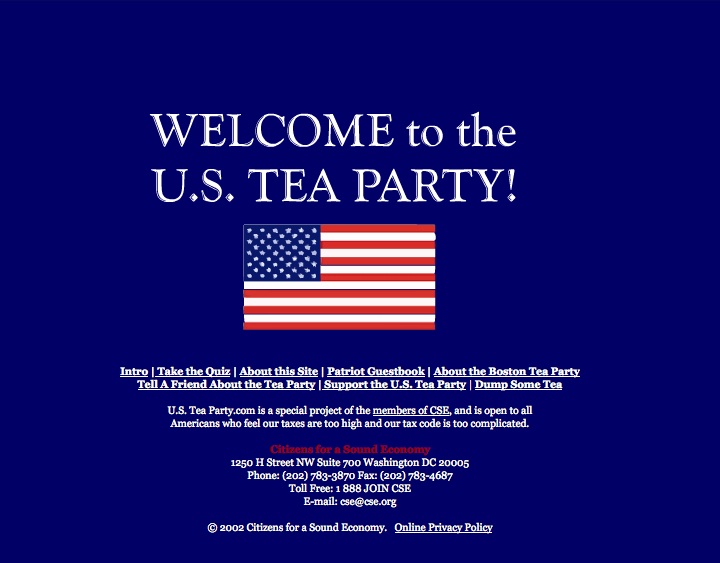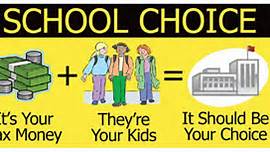 Low-wage workers across the country are clocking out and rising up? Strikes to demand higher wages? Obama calls to raise the federal minimum wage from $7.25 to $9? WTF. Ignorant is as ignorant does. Your wage is simply determined by what your worth. If you make $8/hr it's because someone could replace you if you decided to leave and do the exact same job. Being in a country that has plenty of people that are begging to get a job, I would tread lightly before striking and urging these large corporations to raise their bottom line. You know how they got large in the 1st place? by being competitive in the marketplace. To be competitive requires ANY business to ensure the bottom line is as low as it can go. So what is typically the largest expense in the factor of production? It's F'N labor. No rocket science there. This is especially crucial to understand when your selling products like cheeseburgers over selling products like computers. People... I URGE you to take a BASIC economics class. Raising the minimum wage has more negative impact than it does positive. Personally, I for removing it completely... but we can into those meat and potatoes on another discussion. If you think McDonalds should pay you more, then QUIT. I promise you they will be able to replace you tomorrow. Now lets look at the other end of the spectrum... say a starting QB (Tom Brady, RG 3, Manning, etc), or the leading engineer for NASA, or the top researcher @ Harvard quit tomorrow as well. Do you think it would be as easy to find a replacement? I think not. That's prolly, for starters, why they make the salaries they do. Complain if you want, but this is fact. To the $8/hr hamburger flipper, you think you deserve $15/hr? If I was your boss I would gladly show you the door. If you decided to protests and make a big scene in an attempt to force my hand... then I would escort you out the door. I promise you, by the close of business tomorrow, I can find someone to replace you. I will go as far as to say I bet I can find someone in this labor market that will do just as good of a job as you (flip "X" burgers per hr) and do it for $7.50/hr. Arguments for raising minimum wage mainly consist of the points that people can't survive or living standards are atrocious @ $8/hr. You know what I say? Thats not the company's concern. They are not in the business of making sure you have everything you want. They are simply in the business of flipping burgers...and doing it as cheaply as possible. It's not the company's fault that you have gov't that makes our country unable to live on $8/hr. This is part of the fuckin problem with the liberal side. They keep giving handouts to their voter base in order to attract and keep voters. This is part of why it's so expensive to live in this country. In the case of raising minimum wage, find me some enlightened economists who think this is smart. On the other side, you have conservatives who are equally as evil for they embed with religion in order to attract a voter populous... but as for sake in this argument, atleast they are conservative. (IE they try and stay out the minimum wage argument) If you want a solution, I propose you 1.) Take a basic economics course and challenge the professor everyday with all your minimum wage questions, then 2.) Stop voting R and D simply bc they have a R and D when you step into the voting block.... rather try something new, VOTE LIBERTARIAN. In a libertarian world, there would: - A truly free market. (What's free about our market now when the gov't tells employers what to pay)
- Significantly less unemployment (Rob Sarvis is the ONLY candidate who is even close to making Virginia "Open for Business" where both employee and employers would benefit.
- A DRASTICALLY cheaper (and more efficient) Gov't. If you want to start taking guesses on why you can't live on an $8hr salary, the first place I would start pointing is how expensive our government is.... and that's something both sides are to blame. One side gives too many handouts and the other believes is regulating the poo out of you.
I could go on and on about this and would love to get more into the numbers and economic data behind it. If anyone would like to discuss this further, please email me @ [email protected]-Jason Feimster
In the past few months, the Virginia gubernatorial race was looking bleak. It was a choice between Ken Cuccinelli and Terry McAuliffe, or, as the Richmond-Times Dispatch put it, Sauron vs. Spongebob. Reason.com tactfully renamed the article, Virginia loses no matter who wins the governor’s race. On April 21st, the Libertarian Party of Virginia nominate nominated Robert Sarvis for governor. He has earned degrees in mathematics from Harvard University and the University of Cambridge, a J.D. from N.Y.U. School of Law, and a Master’s in economics from George Mason University. And he has a diverse professional background, with experience as an entrepreneur and small-business owner, a software engineer and mobile-app developer, a math teacher, and a lawyer. Today, I’m excited to announce that that is no longer the case. An excerpt from Sarvis’ campaign website, indicates his motives for running. Rob is running for Governor because Virginia deserves intelligent, economically literate leadership that supports marriage equality and emphasizes freedom, free markets, and the rule of law. While the Democratic and Republican parties have put forward candidates that are terribly wrong for Virginia, Rob is committed to principled governance that protects individual rights, abhors cronyism, fosters competitive markets in education, welcomes immigrants with open arms, recognizes marriage equality, and understands the government’s fiduciary duties toward its citizens.
Sherri Shepherd of ABC's "The View'" has not exactly been the most ardent champion of gay rights in the past, having supported Proposition 8 in 2008. But yesterday on the show she commented that if Virginia GOP gubernatorial candidate Ken Cuccinelli -- who is intent on reinstating Virginia's Crimes Against Nature law -- really thinks oral sex (between any two people) is the same as gay sex, then she, a self-professed evangelical Christian, "is gayer than a gay two-dollar bill." Is this really where the GOP is going in 2013, taking on straight sex too? And that raises yet another question: Is it time for a reporter to ask Cuccinelli, currently the Virginia attorney general, if he's ever engaged in cunnilingus or had anyone go down on him? Is American politics truly headed in that direction as the GOP defies political analysts as well as the beliefs and practices of the vast majority of Americans and continues to pander to extremists within in its base? In 2012, we saw two political candidates who could not have been more starkly different on gay rights and some predicted it was the last time we'd see it. President Obama supported marriage equality, while Mitt Romney supported a constitutional ban on gay marriage. When Romney lost, and as polls showed majority support in the country for gay marriage, political analysts, pundits and even the Republican National Committee chair himself, Reince Preibus, predicted GOP candidates would need to change the tone on gay rights. After the Supreme Court's gay marriage rulings last month, the predictions only continued, with some even saying that momentum in the Republican Party is moving toward changing with the times. But that doesn't seem to be the case despite three GOP senators coming out for marriage equality. After potential presidential contender Rick Perry's recent railing against the Boy Scouts, and possible presidential candidate Sen. Rand Paul's warning that gay marriage could lead to marriage with "non-humans," we now have Cuccinelli doubling down in a debate over the weekend on his 2009 comments that homosexuality is "harmful" and "soulless." More than that, just when you thought there couldn't be two opponents in a race as vastly different on gay issues as Romney and Obama, the race in Virginia is simply incredible. On the one side is Democrat Terry McAullife supporting marriage equality in a state with a horrendous record on gay rights but where recent polls show steady movement in the right direction, with 50 percent of Virginians now supporting gay marriage. And on the other side is Cuccinelli, who not only opposes gay marriage but is trying to bring back the "crimes against nature" law, banning oral and anal sodomy for everyone. The law was ruled unconstitutional earlier in the year by federal courts. But that doesn't matter to Cuccinelli, who launched a website last week which claims his effort is all about protecting children from predators. He's used a case of a man having sex with an underage girl in his push for reinstating the law that would ban sodomy between consenting adults, but with his attacks on homosexuality, Cuccinelli is clearly floating the heinous lie that homosexuals are child predators, hoping to stir the large Christian conservative electorate in Virginia. The race reflects the two Virginias: diverse urban and suburban Northern Virginia vs. the white rural South. But in many ways it also reflects what is still two Americas on gay rights, despite all the polling we've seen, and the two vastly different directions politicians in the major parties are going on the issue in speaking to their bases, despite all the advice of analysts and pundits to the GOP. Polls show the race tight with a large portion of the electorate still undecided. With the Crimes Against Nature law having included heterosexual sodomy, Cuccinelli's call to reinstate it, at least judging by Sherri Shepherd's reaction, obviously could inspire a "we're all gay now" mentality and backfire. But if Cuccinelli wins, it will only highlight the early signs we're seeing that gay-bashing is going to be a staple in the GOP for a long time, including on the GOP campaign trail in 2016. by Michelangelo SignorileEditor-at-large, HuffPost Gay Voices
Ed Crane knew what he was doing. Ask yourself how he is living today, how much he made selling out the Freedom Movement. It was the failure of the Libertarian Party as a tool to enact freedom which forced formation of later movements. And at the same time allowed the Kochs to exert more and more control. - Melinda From: Desmogblog.com A new academic study confirms that front groups with longstanding ties to the tobacco industry and the billionaire Koch brothers planned the formation of the Tea Party movement more than a decade before it exploded onto the U.S. political scene. Far from a genuine grassroots uprising, this astroturf effort was curated by wealthy industrialists years in advance. Many of the anti-science operatives who defended cigarettes are currently deploying their tobacco-inspired playbook internationally to evade accountability for the fossil fuel industry's role in driving climate disruption. The study, funded by the National Cancer Institute of the National Institute of Health, traces the roots of the Tea Party's anti-tax movement back to the early 1980s when tobacco companies began to invest in third party groups to fight excise taxes on cigarettes, as well as health studies finding a link between cancer and secondhand cigarette smoke. Published in the peer-reviewed academic journal, Tobacco Control, the study titled, 'To quarterback behind the scenes, third party efforts': the tobacco industry and the Tea Party, is not just an historical account of activities in a bygone era. As senior author, Stanton Glantz, a University of California, San Francisco (UCSF) professor of medicine, writes: "Nonprofit organizations associated with the Tea Party have longstanding ties to tobacco companies, and continue to advocate on behalf of the tobacco industry's anti-tax, anti-regulation agenda."The two main organizations identified in the UCSF Quarterback study are Americans for Prosperity and Freedomworks. Both groups are now "supporting the tobacco companies' political agenda by mobilizing local Tea Party opposition to tobacco taxes and smoke-free laws." Freedomworks and Americans for Prosperity were once a single organization called Citizens for a Sound Economy (CSE). CSE was founded in 1984 by the infamous Koch Brothers, David and Charles Koch, and received over $5.3 million from tobacco companies, mainly Philip Morris, between 1991 and 2004. In 1990, Tim Hyde, RJR Tobacco's head of national field operations, in an eerily similar description of the Tea Party today, explained why groups like CSE were important to the tobacco industry's fight against government regulation. Hyde wrote: "... coalition building should proceed along two tracks: a) a grassroots organizational and largely local track,; b) and a national, intellectual track within the DC-New York corridor. Ultimately, we are talking about a "movement," a national effort to change the way people think about government's (and big business) role in our lives. Any such effort requires an intellectual foundation - a set of theoretical and ideological arguments on its behalf." The common public understanding of the origins of the Tea Party is that it is a popular grassroots uprising that began with anti-tax protests in 2009. However, the Quarterback study reveals that in 2002, the Kochs and tobacco-backed CSE designed and made public the first Tea Party Movement website under the web address www.usteaparty.com. Here's a screenshot of the archived U.S. Tea Party site, as it appeared online on Sept. 13, 2002: CSE describes the U.S. Tea Party site, "In 2002, our U.S. Tea Party is a national event, hosted continuously online, and open to all Americans who feel our taxes are too high and the tax code is too complicated." The site features a "Patriot Guest book" where supporters can write a message of support for CSE and the U.S. Tea Party movement. Sometime around September 2011, the U.S. Tea Party site was taken offline. According to the DNS registry, the web address www.usteaparty.com is currently owned by Freedomworks. The implications of the UCSF Quarterback report are widespread. The main concern expressed by the authors lies in what they see happening overseas as the Tea Party movement expands internationally, training activists in 30 countries including Israel, Georgia, Japan and Serbia. As the authors explain: "This international expansion makes it likely that Tea Party organizations will be mounting opposition to tobacco control (and other health) policies as they have done in the USA."Freedomworks and Americans for Prosperity are both multi-issue organizations that have expanded their battles to include other policies they see as threats to the free market principles they claim to defend, namely fighting health care reform and regulations on global warming pollution. The report's warning about overseas expansion efforts by Freedomworks should therefore also be heeded by groups in the health and environment arenas. Finally, this report might serve as a wake-up call to some people in the Tea Party itself, who would find it a little disturbing that the "grassroots" movement they are so emotionally attached to, is in fact a pawn created by billionaires and large corporations with little interest in fighting for the rights of the common person, but instead using the common person to fight for their own unfettered profits. For more information, or more articles like this one, please visit http://libertarianhistory.blogspot.com
 By ILYA SHAPIROSHAREOccupational licensing laws make it harder and more expensive for people to get jobs or to create innovative businesses that might not fit into to conceptual box designed by last generation’s regulators. Worse, while these laws are supposed to be about protecting consumers against dangerous or inept practitioners, they’re often exploited by existing businesses to bar newcomers from competing against them.But these problems are nothing compared to “Certificate of Public Convenience and Necessity” laws, also called “Certificate of Need” or CON laws. Unlike typical licensing rules, CON laws don’t have anything to do with whether a person is educated or qualified. Instead, they prohibit you from going into business unless you first prove to bureaucrats that a new business is “needed.” And these laws rarely define “need,” or explain how to prove it. Still worse, such laws usually allow existing firms to block a newcomer from staring a competing business. In short, CON laws bar you from going into business until you get permission from your own competitors. (It sounds like something from an Ayn Rand novel, right?) Last week, Cato adjunct scholar Timothy Sandefur and his colleagues at the Pacific Legal Foundation filed a motion with a federal judge in Kentucky asking the court to strike down that state’s CON law for moving companies. The details are here, and they’re telling. There have been 39 applications for new moving licenses since 2007. Those that were not “protested” by existing moving companies were approved without incident. But in 19 cases, existing firms did object. And in all of those cases, one of two things happened: either the applicant gave up and abandoned the application, or the government denied it on the grounds that existing moving services were “adequate.” The state never approved an application that was protested by existing firms, no matter what. In one case, an applicant who’d been working for moving companies for 39 years was denied a license in a decision that declared him fully qualified–but said existing companies didn’t need the competition. No wonder Sandefur calls the law “the Competitor’s Veto.” Notably, of the 114 “protests” filed against applications for new moving licenses in the past five years, all said that the reason for protesting was that a new moving company would cause competition. None even alleged that the applicant was dangerous or incompetent or dishonest. Not only is Kentucky’s CON law explicitly designed to protect established companies against entrepreneurs who want to work hard to support themselves, but they’re also incomprehensibly vague. What is a “need”? What qualifies as “adequate”? Nobody knows, and state officials testified under oath that they don’t use any objective standards when making such determinations. The Bluegrass State, by the way, isn’t the only example of this sort of thing. In an article forthcoming in the George Mason Civil Rights Law Journal, Sandefur demonstrates the same pattern in Missouri, where he challenged the constitutionality of a very similar law. There, too, all of the 110 protests filed against moving license applications were filed by existing firms, and all explicitly said that their only reason for objecting was to avoid competition. (That law was repealed last year.) The Supreme Court has made clear that licensing requirements must focus on the applicant’s “fitness or capacity to practice the profession,” and it has invalidated CON laws that only protect cartels against competitors. Like those laws, Kentucky’s CON law isn’t about protecting the public. It’s based on fallacious and outdated economic theories that saw competition as wasteful and inefficient. Economists now generally agree that competition is the source of efficiency – and that when government tries to decide what kind of businesses are “needed,” that power will be captured by private interests seeking to benefit themselves at the expense of consumers and entrepreneurs. Here’s hoping the court strikes down the Kentucky anti-competition law and enforce the constitutional right to earn a living.
By JASON BEDRICKSHAREIn a nation with a strong tradition of holding major political contests in years divisible by the number two, politicos are mostly confined to chirping about distant elections during odd-numbered years. The exceptions in the year following a presidential election are New Jersey and Virginia, which hold their gubernatorial elections. In addition, due to the passing of Senator Frank Lautenberg, New Jersey will hold a special election to the U.S. Senate. In all three elections, one or both of the major candidates have made school choice an issue. That makes sense because school choice is increasingly popular, especially once implemented. Unfortunately, while the candidates should be commended for promoting school choice policies in general, their specifics leave much to be desired. Last week, the Republican gubernatorial candidate in Virginia, Ken Cuccinelli, unveiled an education plan calling for an expansion of the state’s scholarship tax credit program (or the creation of a separate program) that would direct funds to students currently attending a failing public school. However, what Virginia’s scholarship tax credit program really needs is the policy equivalent of Extreme Home Makeover to remove unnecessary regulations on private schools, shift administration of the program to the Department of Revenue, increase the credit amount, and expand the uses of the scholarships beyond just tuition. As Andrew Coulson has demonstrated, it is the least regulated, most market-like private schools that do the best job of serving families. In New Jersey, Governor Chris Christie is once again advocating for a scholarship tax credit program, just as he had promised in 2009. Thus far, Christie has not fulfilled his promise. While Christie has repeatedly included a tax credit program in his proposed budgets, he has also repeatedly signed budgets lacking such programs. Certainly Christie faces a hostile legislature on this issue, but he has proven capable of getting his top priorities through. Private school choice does not appear to be one of them. That said, recognizing the need for competition, Christie did implement a modest public school choice law and has helped transform some traditional district schools into charter schools. It’s certainly possible that if reelected, he might spend his enhanced political capital on finally enacting private school choice. Color me skeptical, but if the latest polls are any indication, voters will give Christie the opportunity to finally keep his promise. In the New Jersey Senate race, both candidates have declared their support for school choice. Indeed, the issue has become somewhat of a political football, with former mayor Steve Lonegan accusing Mayor Cory Booker of not being sufficiently pro-school choice: “It is time for Cory Booker to man up and say once and for all whether he will support school vouchers if he is elected to the U.S. Senate or will he join President Obama in shutting down school voucher programs…Cory had seven years to give low-income students in Newark a chance at receiving a quality education. Instead, he has offered platitudes and vague statements.” The attack is somewhat disingenuous since a voucher program would have to be enacted at the state level, not the local level. Some commentators see the attack as an effort to drive a wedge between Booker and his base to dampen support on election day, though Booker’s support for vouchers didn’t hurt him in the primary. What’s not clear is how either candidate’s support for school choice will translate into policy in the Senate. Supporting the Washington, D.C. voucher program is certainly laudable, but pushing for a national voucher program would be misguided. In summary, it is encouraging that the popularity of school choice programs has translated into greater political support, but this year’s elections don’t offer much for school choice advocates to get excited about.
|







 RSS Feed
RSS Feed